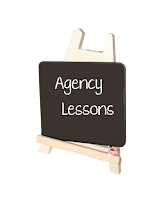"Create a funnel with leader projects"
"Reach across audiences with multiple formats"
"Expand your reach by trying new genres with a pen name"
"Pad your income by becoming a speaker, teach workshops and write non-fiction"
And all of this is great advice. Doing all of this will absolutely grow your brand, increase your income and help you find new readers. Perfect.
The problem is when authors try to do all of this at the same time. You end up in a medieval torture device.
So that kinda defeats the purpose of being an author. Because shouldn't all of this be fun. Hard work certainly, but fun.
But writing stops being fun when you feel like you're being pulled in a hundred different directions because of all the ways you think you need to grow yourself as an author. And that's because you can't do all of it at the same time.
Should you write more books so your fans have lots of ways to engage with you? Absolutely. Should you work to get your books out there across multiple formats and try to sell your foreign rights? You betcha. Should you put out a strong marketing launch to give your book the best shot you can? Of course.
Is it realistic to do all of these things all the time? Are you nuts?
I talk about marketing with a passion and I don't apologize for that. The downside is that many authors reach out to me in a state of panic because they can't find enough time in the day between taking care of their families and dying a slow death at their day jobs to actively write their next book and plan the marketing launch they know they need.
And this is where most authors go wrong. They mistakenly believe that they have to do it all, all the time. When I was putting together the launch for Rite of Rejection I took off a full month from writing and closed to queries at the agency so I could reduce my work load. One look at my schedule told me I couldn't do it all and still be successful.
There is a give and take balance to being an entrepreneur, which is what we are as authors. There are times like now when I will spend more of my day writing and much less on marketing. But in a few months that will swing in the other direction. Not only is that crucial to my sanity, it's also a great way to stay fresh.
As much as I love marketing, I don't think I could go full strength in marketing my books 365 days a year. Even I would burn out, and eventually I'd start phoning it in. That doesn't do anyone any good.
So what should you do?
Make a plan. Decide what you want to work on and when. I want to get my book out in audio and look at translations. And that will be awesome. But I can't dedicate the time to that right now because I'm thick in the editing process. So maybe I put that on my schedule for this fall. And that's okay.
You need to be realistic and honest with your schedule. That means knowing that you can't do more than you can fit at any time. It also means being honest with how you spend your time. You can't do it all, but could you possibly do a little more? I give myself time every night before I sit down to edit to play Candy Crush Saga. This is dumb, but I need that time to turn off my brain from everything else. However, sometimes that fifteen minutes stretches into checking my wall, then heading over to Twitter or Tumblr. Then the next thing I know, I've spent and hour and a half goofing off on the internet. No Bueno.
This post is already long enough so let me close by assuring you that no one expects you to be the Iron Man of publishing. Don't beat yourself up because there are more to-dos than you actually have time for. Instead, plan your goals, prioritize your actions and perform to the best of your ability.












